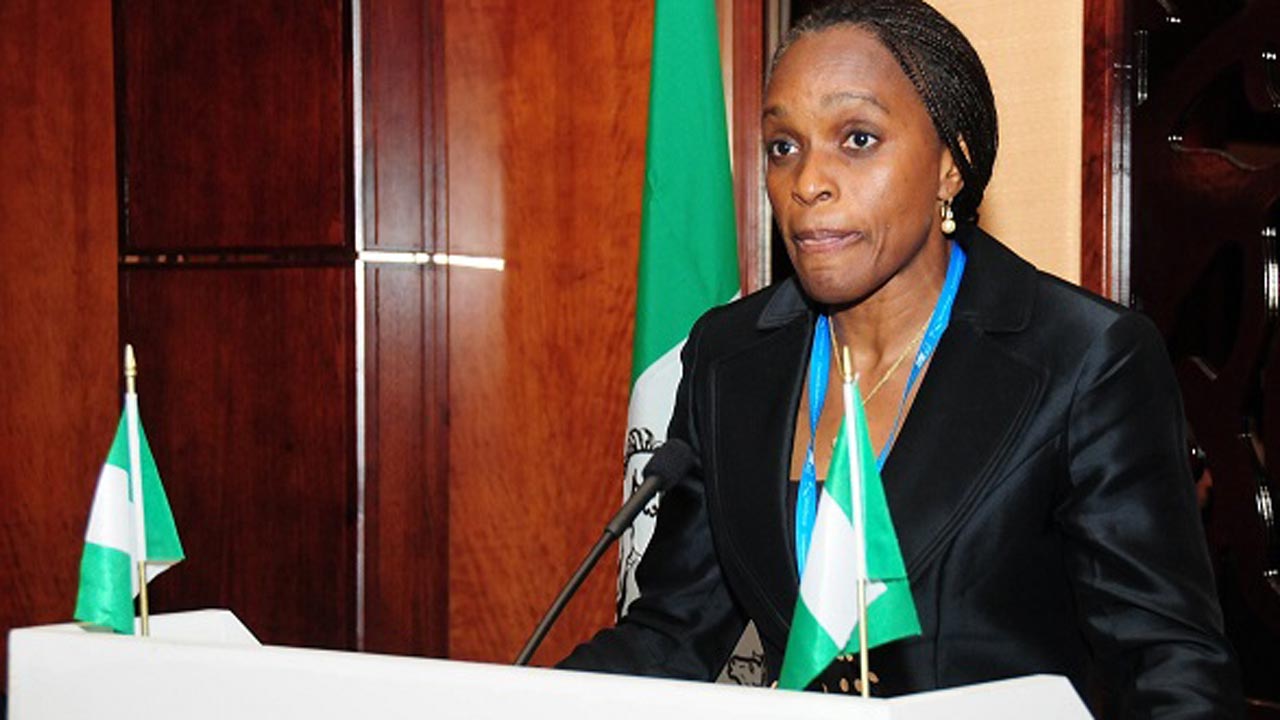A former Minister of Communications Technology, Dr. Mrs. Omobola Johnson, has called for digital revolution for Nigeria to be at par with the developed nations.
Dr. Johnson stated this while delivering a keynote address titled “Best fit infrastructure investment choice for an emerging market” at the maiden edition of Nigerian Telecom Leadership Summit themed “Repositioning the Nigerian Telecom Industry for the Future: prospects and Challenges” organized by Nigerian Communications Commission (NCC).
She said being a digital economy is no longer a choice. “We need another revolution, it’s about digital revolution; it’s about the whole economy in all ramification of sectors,” she said.
According to her, what the nation needs is not to build infrastructure for telecoms but digital infrastructure that will be reliable, affordable and ubiquitous. “The digital revolution we are talking about must deliver social and economic benefits,” she stressed.
Commenting on the role of NCC as the regulator, Johnson stated that the role of the regulator has to change.
“It should go beyond licensing and others because the industry has changed from telecoms to digital industry. We need a regulator that is ahead of the industry, it needs to be more forceful to get things done,” she said while advising the Commission to be much more engaging and collaborative.
Also speaking during a panel discussion, the Chairman, Association of Licensed Telecommunications Operators of Nigeria (ALTON), Engineer Gbenga Adebayo, lamented what he described as multiple taxation on the telecoms operators; saying that only an executive order would address the problem.
“As at this morning, the total count of taxes and levies on the industry stands at 39. This is really a problem because some of the taxes are not relevant to the industry,” he said.
While he stressed the need for the right investment in the industry, he noted that there is need for stable regulatory and policy environment to attract and retain investors to the industry.
Vice President Yemi Osinbajo in his speech at the event said that the telecommunications with Information Technologies have become key enablers to businesses, social interactions and quality governance. “Today, in virtually all aspects of human life, telecommunications have become indispensable,” he said.
According to him, the contributions of the industry to the National Gross Domestic Product (GDP) have continued to grow with the last quarter of 2018, indicating 10.0 percent.
The sector, he said, contributed an impressive N1.9trillion in the 4th quarter of 2018, a clear indicator that the sector is one of the geese that lays the golden egg of the nation’s economy and as such must be encouraged, protected, sustained, supported and projected.
Osinbajo who was represented by the Special Adviser to the President on Political Affairs, Senator Babajide Ojude, mentioned that the Federal Government is looking at investment areas of interest highlighted by the telecom regulator, particularly, the desire by the Commission that the nation needs a deployment of at least 120,000 metropolitan optic fibre connectivity to achieve broadband penetration across the country.
“We are encouraged by the efforts of the NCC to bridge the gap, in spite of the challenges on ground; we have taken a keen interest in how the Commission implements appropriate strategies to connect more than 40million Nigerians identified to have been left out in the current infrastructure layout.
“We are hopeful that the provision of licenses to eligible Infrastructure provisioning organizations (Infracos) for deployment of fibre to all the geopolitical zones under the Open Access Framework will begin to yield fruitful results that will translate to available, accessible and affordable broadband services across the country,” he said.
While it is recognized that investment in the telecom industry is capital intensive, he stated that the sector has huge capacity for returns on investment.
“Having surpassed the 30 percent broadband penetration as at the end of 2018 and other remarkable feats by NCC, the FG is hopeful that Nigeria will continue to play in the League of Nations who have positively responded to the established potential of this technology for the next phase of accelerated development,” he added.
Earlier in his remark, the Executive Vice Chairman of NCC, Professor Umar Garba Danbatta, said the Nigerian Telecom Leadership Summit, which was recently initiated by the NCC was designed to bring together the topmost leadership in all segments of the nation’s telecommunication industry to appraise the performance of the industry, share experiences and project into the future.

 Join Daily Trust WhatsApp Community For Quick Access To News and Happenings Around You.
Join Daily Trust WhatsApp Community For Quick Access To News and Happenings Around You.


